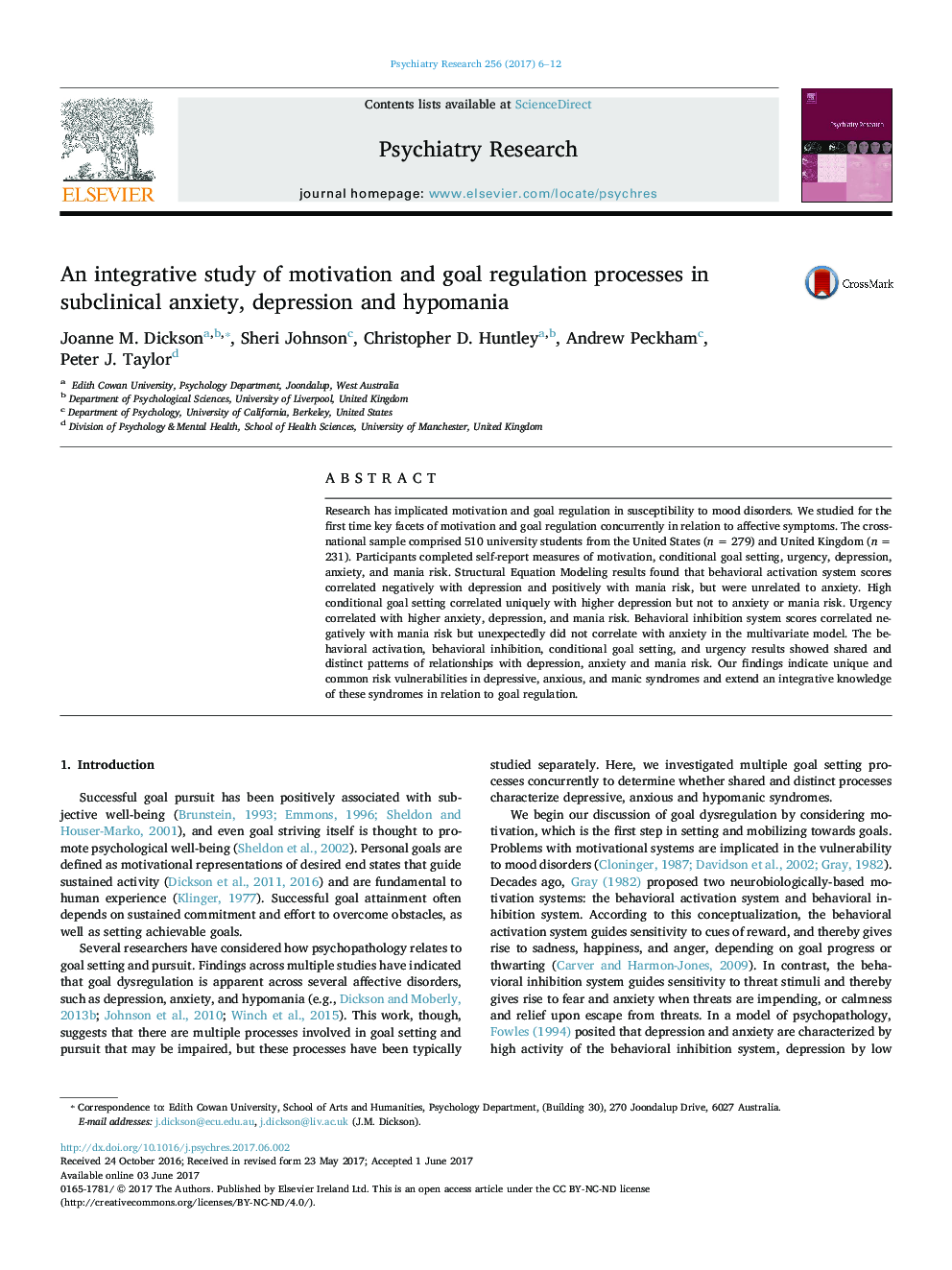| Article ID | Journal | Published Year | Pages | File Type |
|---|---|---|---|---|
| 4933033 | Psychiatry Research | 2017 | 7 Pages |
â¢The findings show that a goal regulation model is important across psychopathologies.â¢Goal setting and emotion-relevant impulsivity are key processes in goal dysregulation.â¢The findings support ongoing transdiagnostic research in this area.â¢Dysregulated motivation, goal setting and urgency may be beneficial treatment targets.
Research has implicated motivation and goal regulation in susceptibility to mood disorders. We studied for the first time key facets of motivation and goal regulation concurrently in relation to affective symptoms. The cross-national sample comprised 510 university students from the United States (n = 279) and United Kingdom (n = 231). Participants completed self-report measures of motivation, conditional goal setting, urgency, depression, anxiety, and mania risk. Structural Equation Modeling results found that behavioral activation system scores correlated negatively with depression and positively with mania risk, but were unrelated to anxiety. High conditional goal setting correlated uniquely with higher depression but not to anxiety or mania risk. Urgency correlated with higher anxiety, depression, and mania risk. Behavioral inhibition system scores correlated negatively with mania risk but unexpectedly did not correlate with anxiety in the multivariate model. The behavioral activation, behavioral inhibition, conditional goal setting, and urgency results showed shared and distinct patterns of relationships with depression, anxiety and mania risk. Our findings indicate unique and common risk vulnerabilities in depressive, anxious, and manic syndromes and extend an integrative knowledge of these syndromes in relation to goal regulation.
